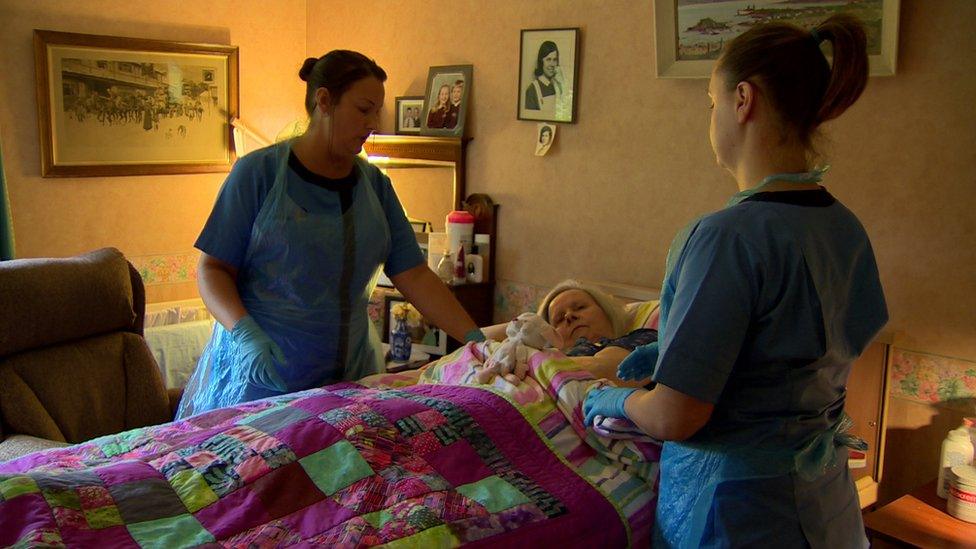Lack of community care packages delays hospital releases
- Published

Figures released by the Health and Social Care Board relate to those waiting 48 hours or more to get home
About 120 people every day are having to stay in hospital unnecessarily because there is not a suitable care package for them in the community.
Figures released by the Health and Social Care Board relate to those waiting 48 hours or more to get home.
The average figure can range from between 90 and 155 in Northern Ireland.
Despite being deemed well enough to go home, some patients are waiting more than a fortnight due to a lack of community care.
The health service is losing at least £1.5m a month due to bed blocking, said the Independent Health and Care Providers (IHCP), which represent private, voluntary, charitable and church affiliated providers of health and social care.
The group warned that unless health and social care (HSC) in Northern Ireland was reformed, the delays would continue to cost more than £50,000 per day.
'Barriers'
"Unless the necessary HSC reforms progress quickly local quality of care will plummet and the system risks collapse," said the IHCP in a statement.
"Officials and clinicians are united behind plans for change but recent years have seen other barriers such as political opposition at a local level."
The issue is being addressed by a number of independent providers across Northern Ireland, including at a Four Seasons Care home in Belfast.
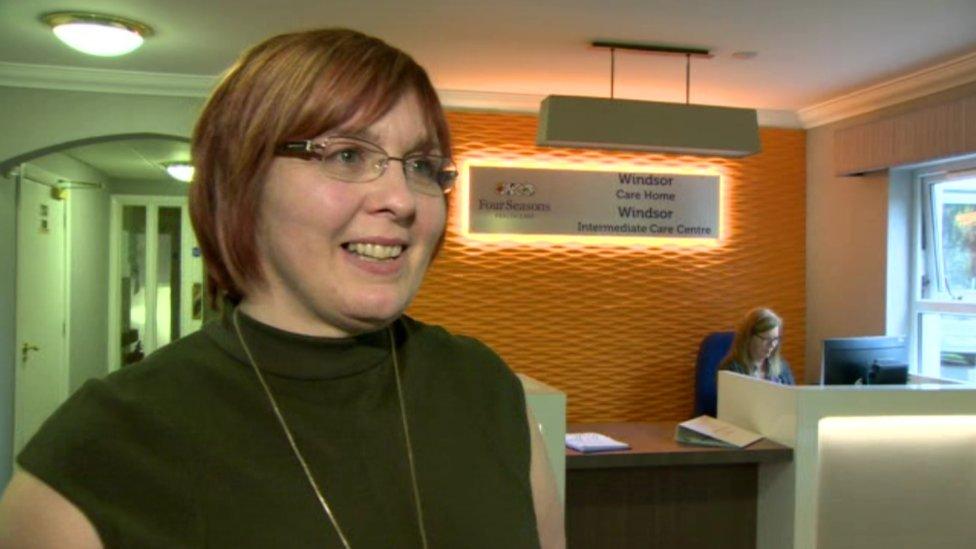
Janice Brown has seen the demand for 'intermediate care' grow
Janice Browne is the regional manager for Windsor Intermediate Care Home.
She said demand for the intermediate service is growing.
"We have seen a growing demand for facilities of this nature and we have four currently running," she said.
"It's very important people are sent home in an environment where they can be as independent as possible and therefore packages of care are not required."
While the Government's plan remains providing more care in the community and away from hospitals, there aren't enough nursing or domiciliary care staff to roll that out quickly and efficiently.
Under Transforming Your Care, the intention was to provide more care for people at home instead of using residential or nursing homes.
The BBC understands that not enough nursing or domiciliary care staff means the need for using residential care homes is growing.
The relatively new facility is called intermediate care.
It is almost like a half-way house for patients between being discharged from hospital and being sent home to live alone.
The Belfast Health Trust uses the facility to place people in who are not deemed fit enough to go home alone.
Kathleen McCoy is 86 and has recently used the service at Windsor Care Home in south Belfast.
'Home sweet home'
Mrs McCoy spent three weeks in the facility after being discharged from hospital after breaking her hip.
They provided physiotherapy, help with personal care and helping her to get round a kitchen again.
"The minute I was wheeled in, the atmosphere just hit me. It was like home - home sweet home," she said.
"It helped me with washing, everything. Now I can go up the stairs, go into the bathroom - although the garden is out of reach at the moment."
In fact, Mrs McCoy said she could not rate her experience highly enough describing it as "amazing".
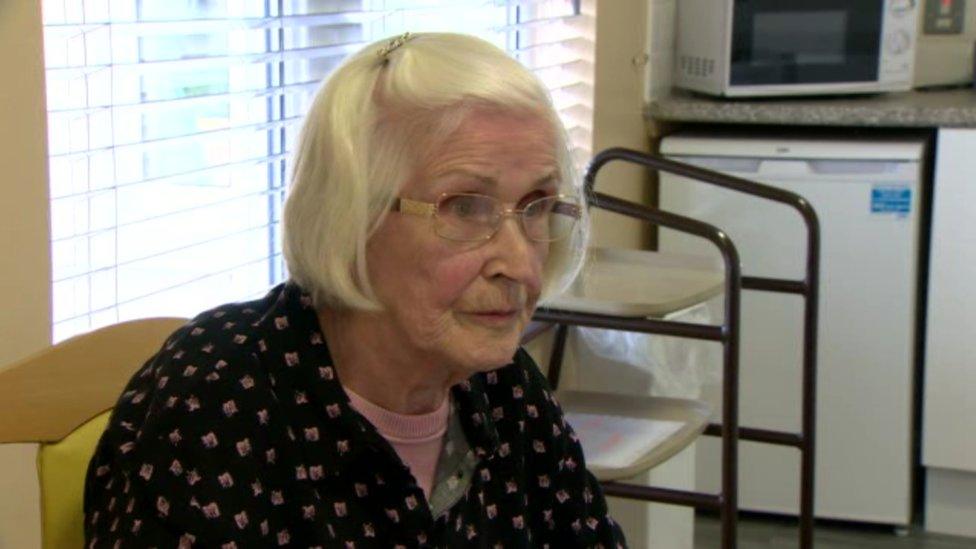
Kathleen McCoy says intermediate care is like "stepping stone" from the hospital
"It's like a stepping stone straight from the hospital - it is like a blessing, really," she said.
"And, my goodness, the food is wonderful. I think I've put on half a stone and the best of it all is I was hungry for my food!"
The 15-bed unit opened its doors to patients in January.
The aim is to discharge patients home within three weeks.
To date, none of those who have used the facility have had to be re-admitted to hospital.
It comes at a time when local hospitals are stretched to the limit.
By discharging patients the hospital beds can be used for more urgent cases, as Janice Brown explained.
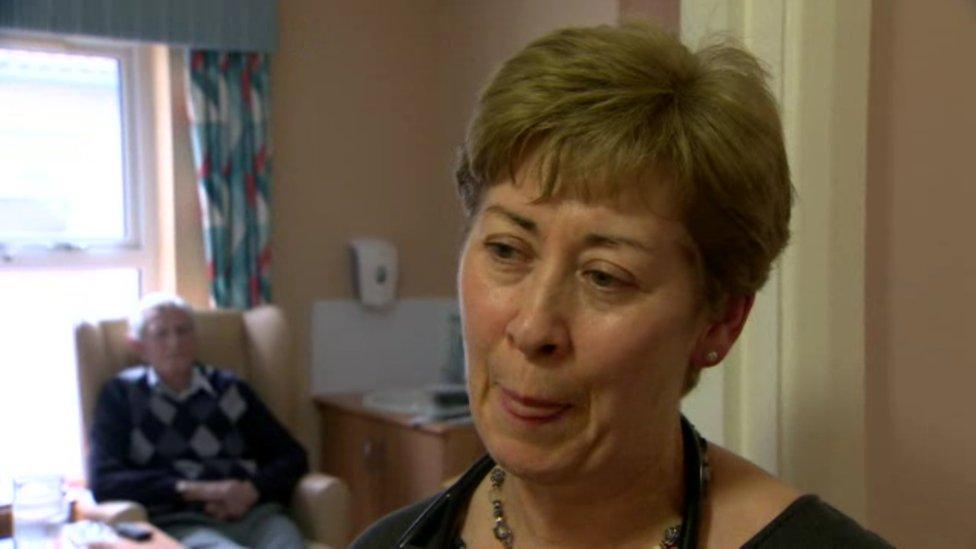
Dr Cecilia Cullen describes intermediate care as "a bridge between hospital and home"
"We help people develop their individual skills and their confidence to be able to go home and live independently," she said.
"This also frees up hospital beds to leave beds for those who are more acutely ill."
Working in partnership with the Belfast Health and Social Care Trust the rehabilitation service is supported by a full multi-disciplinary team of care managers, social workers, physiotherapists, occupational therapists and rehab assistants.
Dr Cecilia Cullen oversees the rehabilitation of patients in Windsor.
"They have better environmental space to recover and heal because they are getting their own room, a full night's rest and are ready for physiotherapists and other therapists that engage with them," she said.
"There is also more of a step down - a bridge between hospital and home."
Real gap
In addition, medical cover is supplied by a daily GP visit and consultant screening at the point of hospital referral.
The health board was unable to provide an overall cost of delayed discharges - as every patient's need is different the board said this was impossible to calculate.
Where possible, the five health trusts are using these intermediate care facilities provided by the independent sector.
The facilities are plugging a real gap in the service.
Four Seasons have four intermediate facilities across Northern Ireland.
In the past year they have had over 800 admissions.
Without the facilities, more older men and women would have had to remain longer in hospital.
The Health and Social Care Board also provide a range of services including Reablement which is a short-term service lasting six weeks or less which provides support to a person in their own home.
Acute Care at Home is a new service for older people aged 75 plus and provides expert care in the person's own home as an alternative to hospital attendance or admission.
- Published13 April 2016
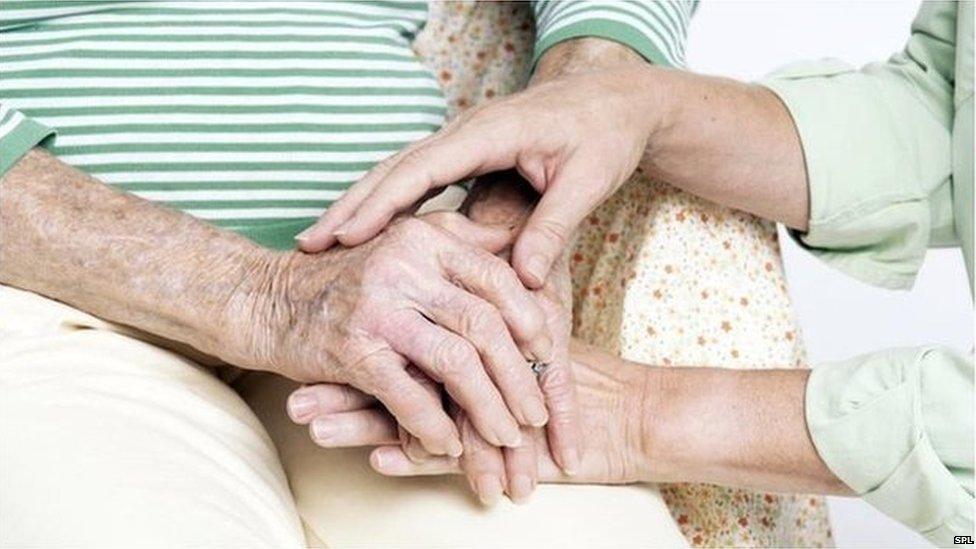
- Published13 April 2016
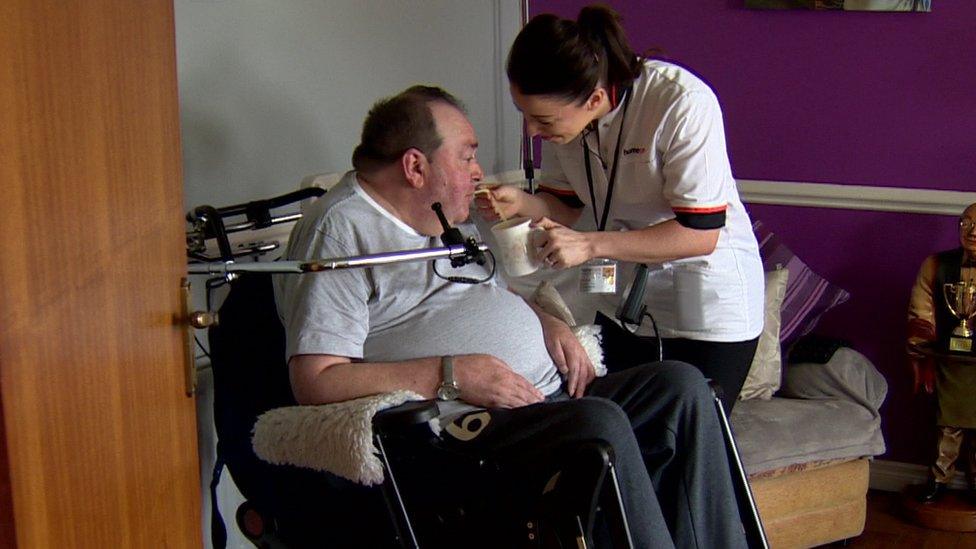
- Published29 October 2015
